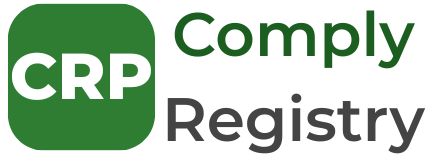How to Build a Career in AML, KYC, and Financial Crime Compliance
How to Build a Career in AML, KYC, and Financial Crime Compliance
With increasing global regulations, digital banking, and financial crime risks, the demand for skilled professionals in AML (Anti-Money Laundering), KYC (Know Your Customer), and financial crime compliance is growing rapidly across banks, fintech companies, crypto platforms, and regulatory bodies.
Here’s a step-by-step guide to help you build a high-impact, future-proof career in this field — whether you’re a fresher, mid-career switcher, or finance/legal professional looking to specialize.
Step 1: Understand the Field
Before diving in, it’s important to grasp what compliance professionals in this domain actually do. Your role may involve:
- Monitoring and detecting suspicious transactions (AML)
- Conducting customer due diligence and onboarding (KYC)
- Filing STRs/SARs (Suspicious Transaction/Activity Reports)
- Ensuring regulatory compliance with local/global frameworks (e.g. FATF, FinCEN, EU AMLD)
- Investigating financial frauds, scams, and high-risk entities
These roles are mission-critical in preventing money laundering, terrorism financing, identity fraud, and insider threats.
Step 2: Develop a Strong Educational Foundation
While there’s no single degree for compliance, most professionals come from backgrounds such as:
- Commerce, Accounting, or Finance
- Law or Criminal Justice
- Business Administration or Economics
- Cybersecurity or IT (for tech-based roles)
Entry-level roles often prefer at least a bachelor's degree. A master’s in risk, forensic accounting, or corporate law can help fast-track your path to leadership positions.
Step 3: Earn a Recognized Compliance Certification
To stand out, especially for global or cross-border roles, certifications are essential. They demonstrate your commitment, domain knowledge, and credibility to employers. To ensure quality and international recognition, look for certifications that are ONRIGA Compliant.
ONRIGA is an independent global accreditation body that endorses only high-standard, globally recognized AML and KYC certifications — ensuring that your training meets international compliance benchmarks.
Examples of certification areas include:
- Anti-Money Laundering and Terrorist Financing
- KYC & Customer Due Diligence Procedures
- Financial Crime Investigation Methodologies
- Screening, Sanctions, and PEP Risk Assessments
Once certified, listing your credential publicly and securing a CRP ID can significantly boost your professional visibility on a global scale.
Step 4: Get Practical Experience
Start small — internships, entry-level analyst roles, or contract compliance positions are a great gateway. You can also explore end-to-end AML or KYC hands-on training programs offered by various institutes, which simulate real-world workflows and tools used by banks and fintech companies. These programs are easily discoverable online by searching for “end-to-end AML or KYC hands-on training”.
Focus on practical exposure to:
- Customer onboarding (KYC/CDD)
- Transaction monitoring systems (e.g. Actimize, SAS, or in-house tools)
- Screening (PEP/sanctions screening)
- Regulatory reporting (STR/SAR submissions)
These foundational experiences help you build investigative thinking, documentation skills, and tool expertise — all of which are critical for success in compliance operations and investigations.
Step 5: Specialize in a Niche
Once you’ve mastered the basics, pick a niche to go deeper. You could specialize in:
- Crypto compliance & virtual assets
- Sanctions compliance (OFAC, EU, UN)
- Corporate due diligence / UBO analysis
- Trade-based money laundering (TBML)
- Forensic investigations and digital frauds
Specialization improves your value in the job market, especially for multinational employers and RegTech firms.
Step 6: Build Your Visibility & Network
Compliance is a high-trust field. Building your professional presence matters:
- Get listed on ComplyRegistry to showcase your CRP ID
- Share insights or articles on LinkedIn
- Join compliance communities and events
- Follow regulators and enforcement bodies globally
Visibility helps employers find you — not just when you’re applying, but when they’re hiring.
Step 7: Stay Updated With Global Regulations
Regulations evolve fast. Stay informed through:
- Regulators (e.g. FATF, FinCEN, RBI, FCA, ESMA, SEBI, AUSTRAC)
- Compliance news platforms like Comply Focus
- Continuous education (micro-courses, webinars, certifications)
- Policy changes in high-risk sectors (crypto, remittance, fintech)
Knowledge currency is your competitive edge.
Final Thought: Start Simple, Grow Strategic
There’s no one-size-fits-all path. But if you stay committed, get certified, gain hands-on experience, and align with regulatory trends — you'll build a rewarding career in one of the most respected domains of finance and governance.
Get Your CRP ID & Boost Your Compliance Career
Tags:
AML career guide, KYC jobs, financial crime compliance, how to become AML analyst, compliance career path, KYC certification, anti-money laundering career roadmap, regulatory compliance jobs, risk management jobs, due diligence training, ONRIGA compliant certification, CRP ID for compliance, compliance registry, financial crime investigation jobs, build career in AML KYC, fintech compliance jobs, AML certification guide, compliance entry level jobs, public registry compliance professionals, verified compliance profile
Have a question about CRP ID registration, employer verification, or profile visibility? We’re here to help.
